How George Floyd's death affected England's 'Little America'
- Published
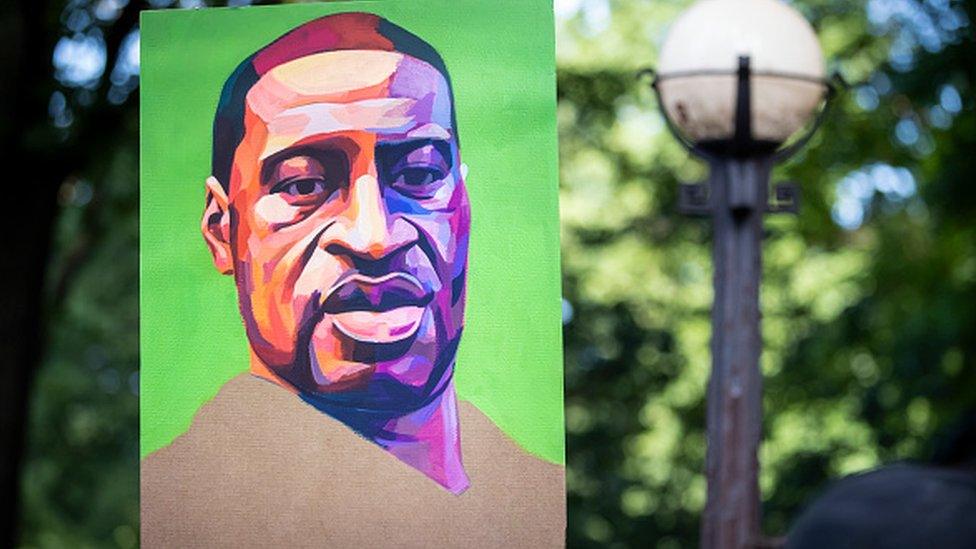
It has been a year since George Floyd was killed
For people living in a corner of East Anglia known as Little America, the murder of George Floyd thousands of miles away in Minneapolis felt very close to home. A year on, what has the lasting impact been on African-American families living on and around three US air bases in England?

'We're making positive changes'
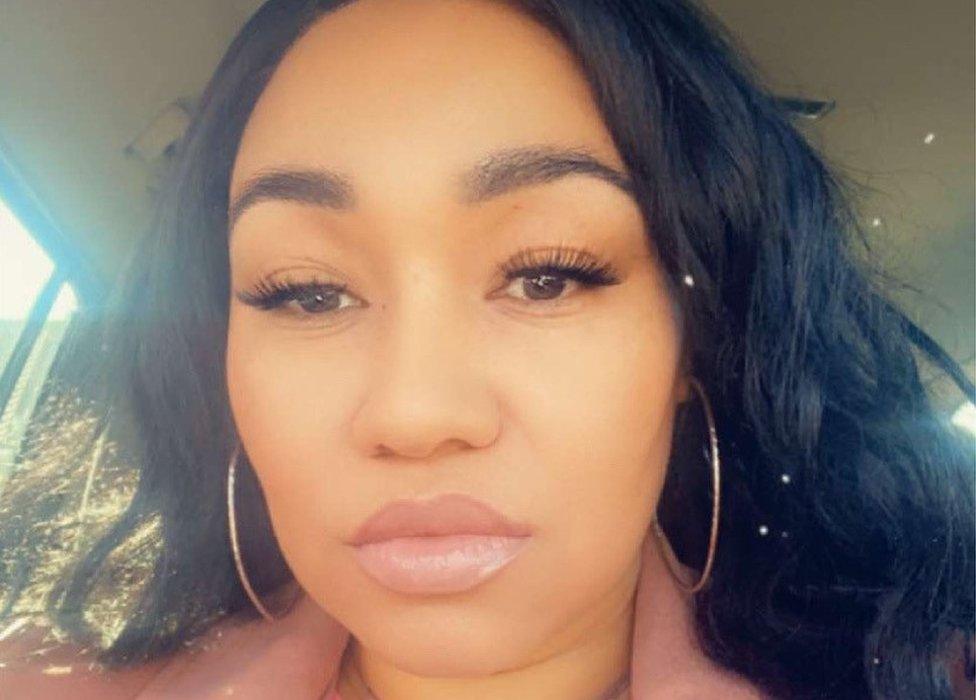
Arisha Tagoe-Jaquez says Mr Floyd's death "shocked me to the core"
The largely rural area includes the two large United States Air Force flying bases at Lakenheath and Mildenhall in Suffolk, and a smaller base at Feltwell in Norfolk, which is mainly used for housing.
About 8,500 military personnel live in the area, with a further 3,500 civilian staff at the bases. On top of that are family members and Americans who have left the military, but stayed in the area.
Many shops and businesses off-base cater for the demand for American products, and they are often set up to accept payment in dollars.
Arisha Tagoe-Jaquez is one of those who still lives in the Mildenhall area with her ex-military husband Kelvin Jaquez and their four children.
She says the impact on the area was "big" when video footage emerged showing white police officer Derek Chauvin continuing to kneel on Mr Floyd's neck even after he pleaded he could not breathe, resulting in the officer's conviction for murder. He is due to be sentenced next month.
Ms Tagoe-Jaquez, 39, was born in England and spent part of her childhood living in America.
She says the footage of Mr Floyd's death "shocked me to the core".
"Racism is one thing but to see that play out on TV, to see someone being murdered on TV, is shocking," she says.
"That could've easily been my dad, an uncle, my husband; it's devastating."
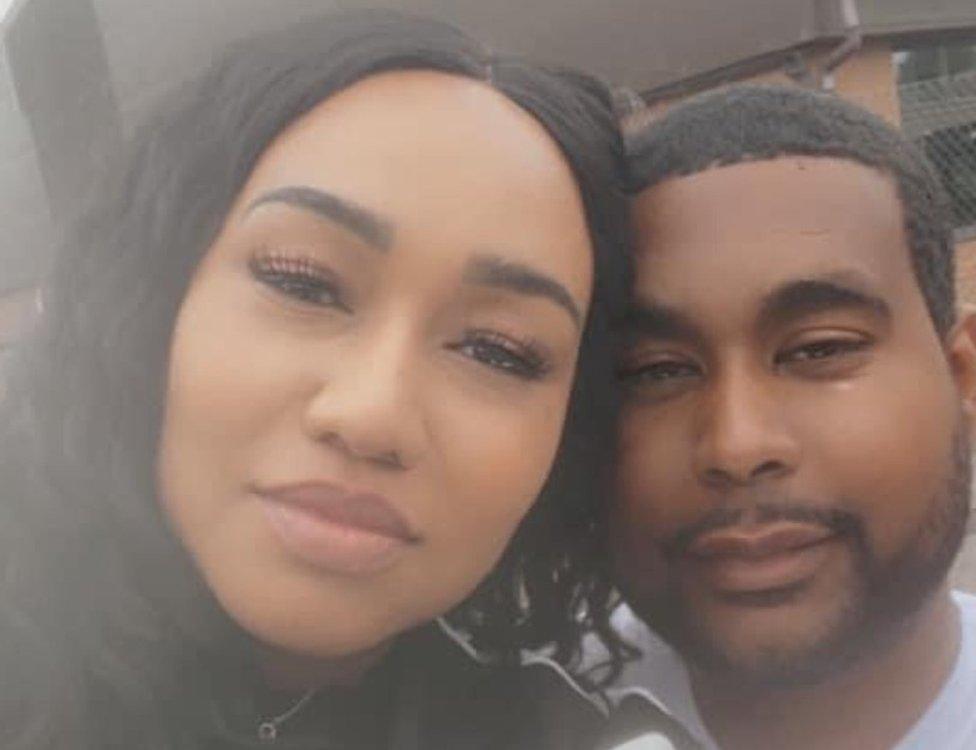
Mrs Tagoe-Jaquez lives in England's Little America with her husband Kelvin and their children
The Liverpudlian, who was born on 6 July 1981 on a night of rioting in the Toxteth area of Liverpool, external, says she has experienced racism herself and has always stood up for racial equality.
She says she was "very moved" by the UK's response to Mr Floyd's death and she has herself become involved in Bury St Edmunds for Black Lives, external.
"I was quite proud how Bury St Edmunds pulled together and decided to do something," she says.
How George Floyd's death changed Afrika Green's hometown of Bury St Edmunds
She says her main aim with the group is to educate and to teach children anti-racism.
"The group is definitely needed. It's never been done before here, and it can get bigger and stronger," she says.
"We are making positive changes, it's nothing to do with division, it's all about inclusion and understanding, and wanting everyone to live harmoniously."

'We're all human'
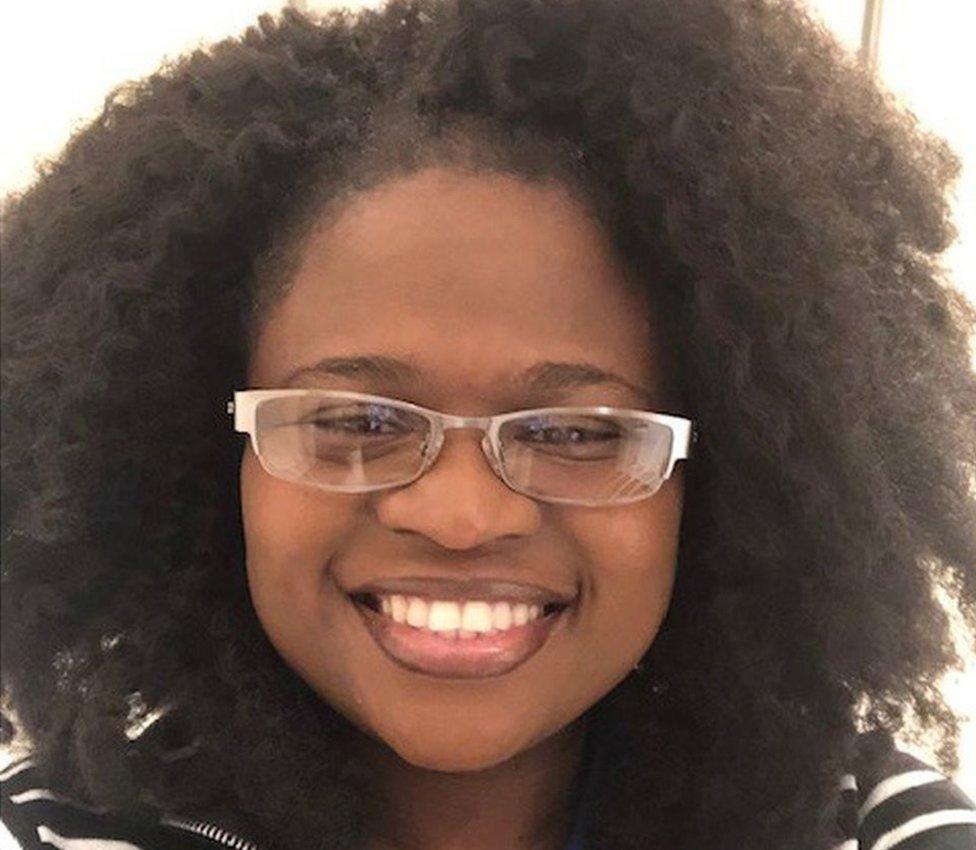
Lakeesha Thomas says her daughter was called racist names at primary school in the UK
When the news broke about Mr Floyd's murder, it made "it really hard to be away from home" for Lakeesha Thomas.
She grew up in Memphis, Tennessee, and went to school in Whitehaven, an area primarily known as the location of Graceland - the former home of Elvis Presley.
She says watching what happened to Mr Floyd "wasn't something that's new" for Americans.
For her, she says oppression in the US "isn't really history, it's an extension of now".
"Family members went through oppression, went through lynching," she says.
She says her grandmother would not even cross the state line into Mississippi as "unspeakable things happened".
"I'm two generations down the line and I get it. I understand why she feels that way," she says.
From leaving school, Ms Thomas served in the USAF for 20 years until she retired in December 2019.
Rather than returning to the US, the former medic decided to settle in Suffolk after serving at Lakenheath to give her daughter Monica "an opportunity to feel safe".
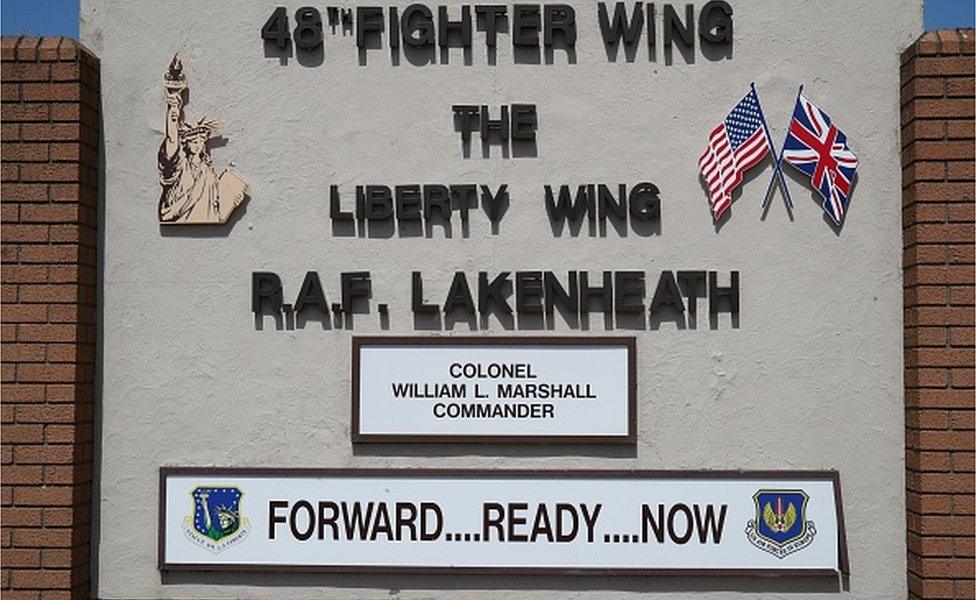
Ms Thomas served as a medic for USAF at RAF Lakenheath in Suffolk
Although she wanted "peace of mind" for her daughter, now 13, she was not prepared for the racism she encountered at school.
She says at primary school, her daughter was called names and was excluded from the lunch table because of the colour of her skin.
"And at Christmas time, some kids gave her a bottle of hot sauce. She was so excited that they had given her a gift that I didn't have the heart to tell her the insinuation, and that hurt me so badly.
"But the following year I thought I couldn't not tell her, so I explained to her what that meant and the tears came, and the anger came."
She says she taught her daughter to "see the humour first" and to make the other children realise how it made her feel.
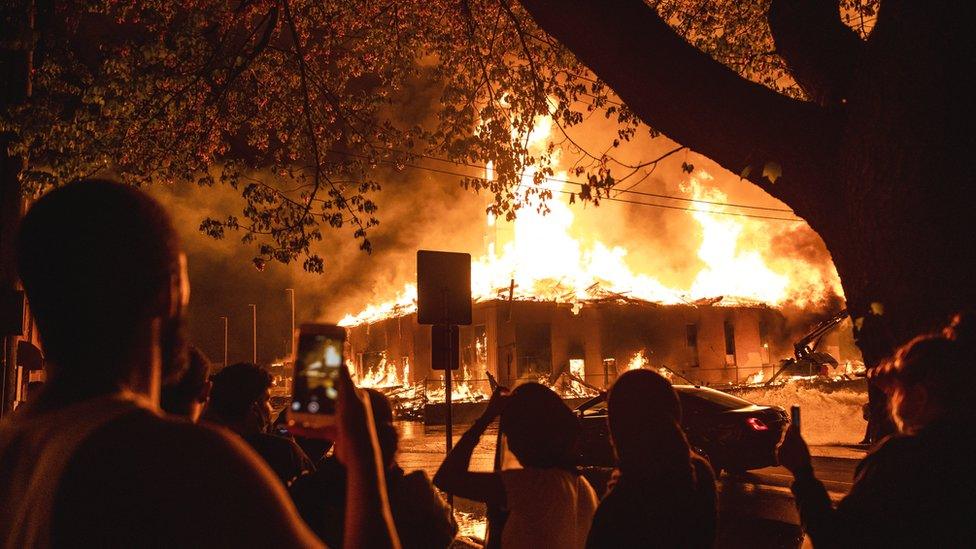
There were several nights of unrest in Minneapolis, Minnesota after Mr Floyd was killed
Ms Thomas, who runs several businesses including a hair and beauty salon in Mildenhall, says since moving up schools, things have become easier for her daughter and other children are "more accepting".
She says hearing the news of Mr Floyd and the subsequent unrest "made it really hard to imagine what home was like".
"I've been in the UK for seven years. What's going on isn't what I know my home to be," she says.
She says "there's an opportunity" for change, although she admits she personally does not like the term Black Lives Matter.
"It's divisive," she says. "I get the point, but it's not inclusive, it's just a label.
"How can you expect the world to embrace you when you're saying something divisive?"
She says the key element is that "we're all human whether we choose to recognise that in each other".


'We're starting to make a difference'
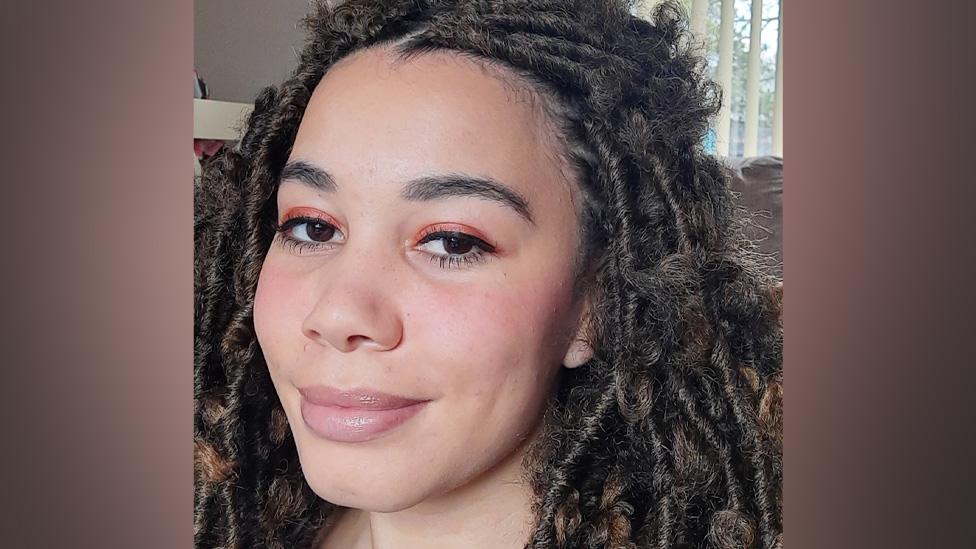
Tamika Green says she is helping to make a difference in her hometown, Bury St Edmunds
"From a young age I felt different and I didn't really feel like I belonged properly," says Tamika Green.
The 22-year-old, who grew up in Bury St Edmunds, which is a short distance from "Little America", says she "hated" how she looked.
"If you don't see many people who look like you around, you have a perception of yourself, and if you can't find hair products or hairdressers you feel like you don't belong," she says.
The Anglia Ruskin University graduate says she would straighten her hair as she felt embarrassed by having an afro, and at the age of five she wanted to bleach her skin.
But her views about herself changed when she took her A-levels and learned about the civil rights movement during history lessons.
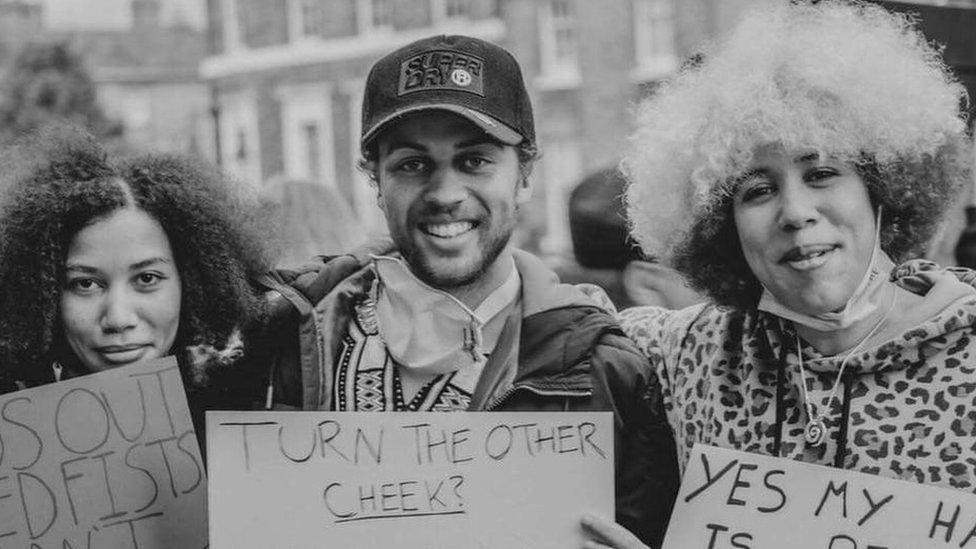
Tamika Green, left, grew up in Bury St Edmunds with her twin brother Jamal and sister Affy
Miss Green, who has a twin brother Jamal and older sister Affy, 30, says: "It made me realise people sacrificed their lives for the cause - how could I be embarrassed about myself?
"Those people fought for me to live the life I'm living."
She says Mr Floyd's death has been a catalyst for the formation of groups like Bury St Edmunds for Black Lives, of which she is a member.
"Since learning about my history during my A-levels, I wanted to get involved and do that kind of thing, speak about my experiences and try to make a change.
"I never thought I would get that opportunity but I've now been able to talk about my story for an online webinar, write in the Bury Free Press, and it's good to have a presence in the town. People know we are here, and we're starting to make a difference."

Find BBC News: East of England on Facebook, external, Instagram, external and Twitter, external. If you have a story suggestion email eastofenglandnews@bbc.co.uk

Listen to George Floyd: A year on - Pause and Reflect on BBC Radio Suffolk
- Published25 May 2021
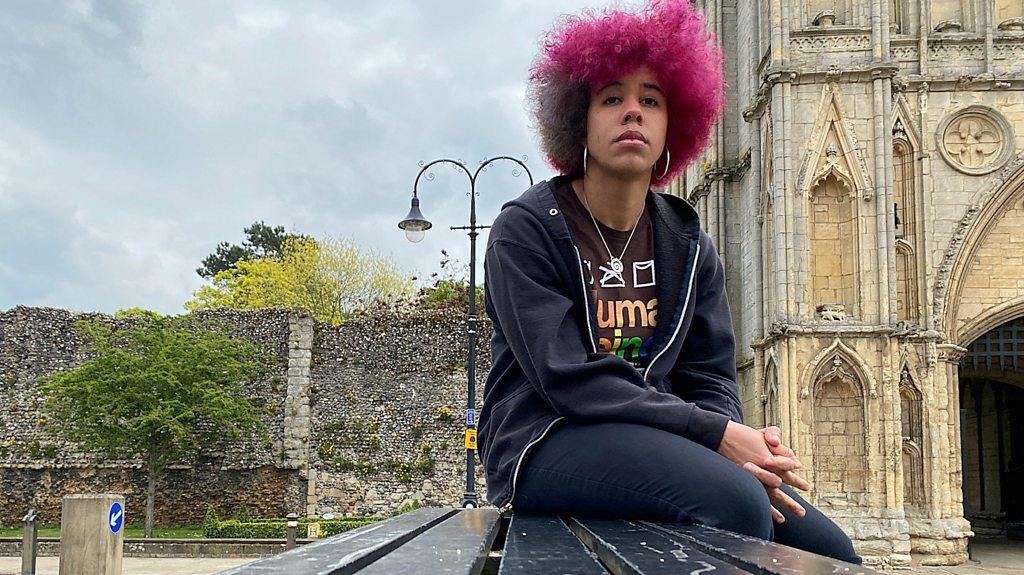
- Published31 July 2020
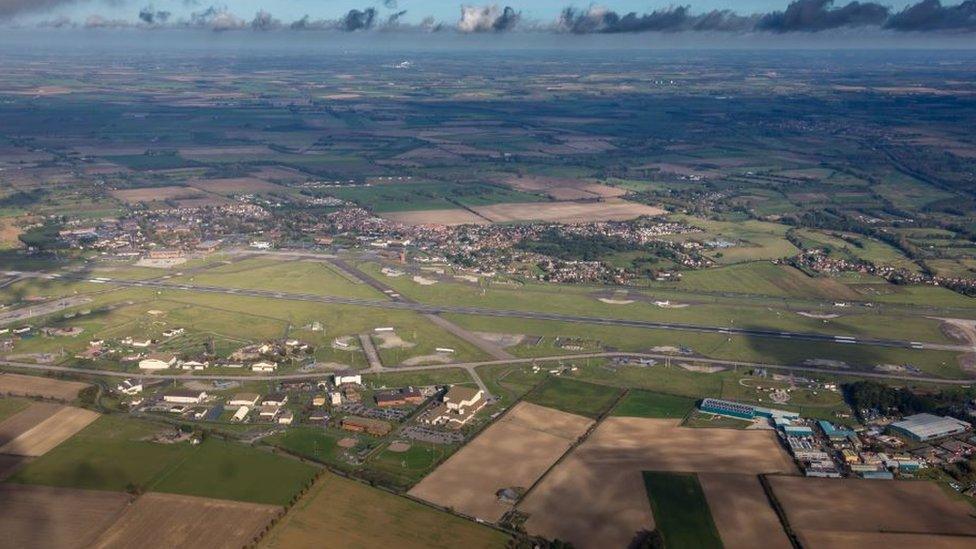
- Published9 May 2020
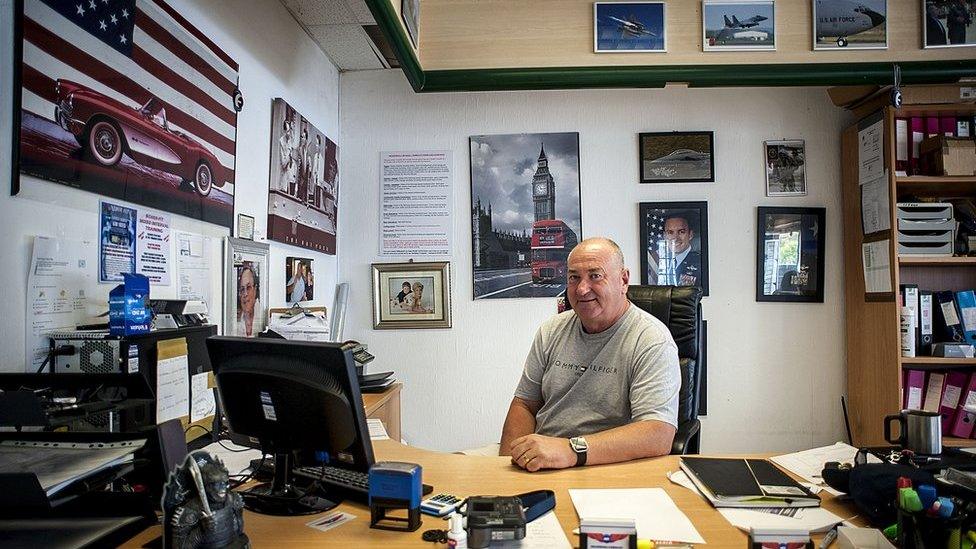
- Published15 June 2020

- Published4 July 2017
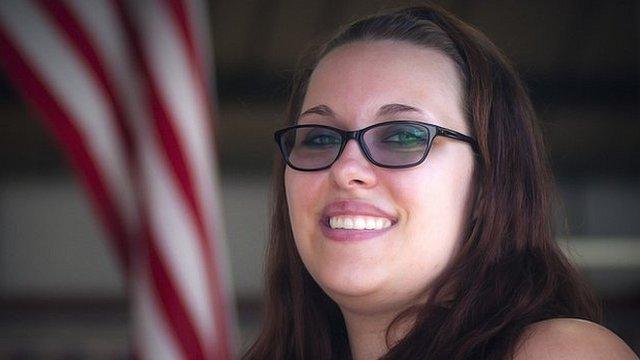
- Published8 January 2015
